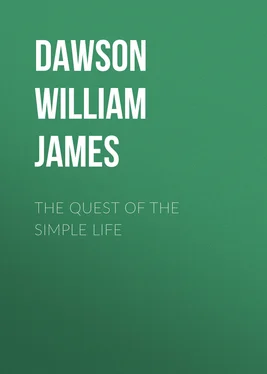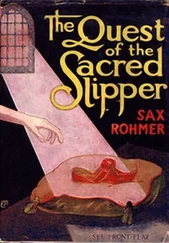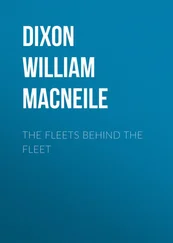William Dawson - The Quest of the Simple Life
Здесь есть возможность читать онлайн «William Dawson - The Quest of the Simple Life» — ознакомительный отрывок электронной книги совершенно бесплатно, а после прочтения отрывка купить полную версию. В некоторых случаях можно слушать аудио, скачать через торрент в формате fb2 и присутствует краткое содержание. Жанр: foreign_prose, foreign_antique, на английском языке. Описание произведения, (предисловие) а так же отзывы посетителей доступны на портале библиотеки ЛибКат.
- Название:The Quest of the Simple Life
- Автор:
- Жанр:
- Год:неизвестен
- ISBN:нет данных
- Рейтинг книги:4 / 5. Голосов: 1
-
Избранное:Добавить в избранное
- Отзывы:
-
Ваша оценка:
- 80
- 1
- 2
- 3
- 4
- 5
The Quest of the Simple Life: краткое содержание, описание и аннотация
Предлагаем к чтению аннотацию, описание, краткое содержание или предисловие (зависит от того, что написал сам автор книги «The Quest of the Simple Life»). Если вы не нашли необходимую информацию о книге — напишите в комментариях, мы постараемся отыскать её.
The Quest of the Simple Life — читать онлайн ознакомительный отрывок
Ниже представлен текст книги, разбитый по страницам. Система сохранения места последней прочитанной страницы, позволяет с удобством читать онлайн бесплатно книгу «The Quest of the Simple Life», без необходимости каждый раз заново искать на чём Вы остановились. Поставьте закладку, и сможете в любой момент перейти на страницу, на которой закончили чтение.
Интервал:
Закладка:
The thing that is least perceived about wealth is that all pleasure in money ends at the point where economy becomes unnecessary. The man who can buy anything he covets, without any consultation with his banker, values nothing that he buys. There is a subtle pleasure in the extravagance that contests with prudence; in the anxious debates which we hold with ourselves whether we can or cannot afford a certain thing; in our attempts to justify our wisdom; in the risk and recklessness of our operations; in the long deferred and final joy of our possession; but this is a kind of pleasure which the man of boundless means never knows. The buying of pictures affords us an excellent illustration on this point. Men of the type of Balzac's Cousin Pons attain to rapture in the process because they are poor. They have to walk weary miles and wait long weeks to get upon the track of their treasure; to use all their knowledge of art and men to circumvent the malignity of dealers; to experience the extremes of trepidation and of hope; to deny themselves comforts, and perhaps food, that they may pay the price which has at last, after infinite dispute, reached an irreducible minimum; and the pleasure of their possession is in the ratio of their pains. But the man who enters a sale-room with the knowledge that he can have everything he wishes by the signing of a cheque feels none of these emotions. It seems to me that money has lost more than half its value since cheques became common. When men kept their gold in iron coffers, lock-fast cupboards, or a pot buried in an orchard, there was something tangible in wealth. When it came to counting out gold pieces in a bag, men remembered by what sweat of mind or body wealth was won, and they had a sense of parting with something which was really theirs. But a cheque has never yet impressed me with the least sense of its intrinsic value. It is a thing so trivial and fragile that the mind refuses to regard it as the equivalent of lands and houses and solid bullion. It is a thing incredible to reason that with a stroke of the pen a man may sign away his thousands. If cheques were prohibited by law, and all payments made in good coin of the realm, I believe we should all be much more careful in our expenditure, for we should have at least some true symbol of what expenditure implies.
In an ideal state all incomes beyond 10,000 pounds per year should be prohibited. Almost all the real luxuries of life may be enjoyed on half that sum; and even this is an excessive estimate. Such a regulation would be of vast advantage to the rich, simply because it would impose some limit at which economy commenced. They would then begin to enjoy their wealth. Avarice would decline, for obviously it would not be worth while to accumulate a larger fortune than the State permitted. We might also expect some improvement in manners, for there would be no room for that vulgar ostentation in which excessive wealth delights. If a man chose to exceed the limit which the law prescribed he would do so as a public benefactor; for, of course, the excess of wealth would be applied to the good of the community, in the relief of taxation, the adornment of cities, or the establishment of libraries and art-galleries. It would no doubt be objected that the great historic houses of the aristocracy could not be maintained on such an income; five thousand pounds a year would hardly pay the servants on a great estate, and provide the upkeep of a mansion. But in this case the State would become the custodian of such houses, which would be treated as national palaces. It is by no means improbable that their present owners would be glad to be rid of them on generous terms, which provided for a nominal ownership and an occasional occupation. However this may be, it is certain that the rich would profit by the change, for their chance of getting the most and best out of life would be much increased by the limit put upon cupidity and ostentation.
CHAPTER III
GETTING A LIVING, AND LIVING
Getting the best and most out of life, I take to be the most rational object of human existence. Even religion, although it affects to scorn the phrase, admits the fact; for no man would be religious unless he were convinced that he thereby added something to his store of happiness. It is a matter of temperament whether a man treats religion as a panacea for his mortal troubles, or the 'Open Sesame' of brighter worlds, but it is quite certain that he regards it as a means of happiness. I cannot doubt that the anchorites, ascetics, and cloistered nuns of mediaeval times were happy in their own way, although it was in a fashion that appears to us highly foolish and absurd. Even a St. Stylites had his consolations; he was kept warm upon his pillar by the comfortable sense of his superiority to his wicked fellow-creatures.
To get the best out of life there must be some adequate fulfilment of one's best self. Man is a bundle of tastes and appetites, some lofty, and some ignoble, but all crying out for satisfaction. Wisdom lies in the discernment of essentials; in just discrimination between false and true tastes. Man has been a long time upon the earth, and he has spent his time for the most part in one ceaseless experiment, viz., how he may become a satisfactory creature in his own eyes. All civilisations converge upon this point; and we maybe sure that, in their lonely hours of meditation, the fantastic warder on the great wall of China, and the Roman soldier pacing to and fro in the porticoes of the Palatine, had much the same thoughts. Whosoever speaks to man on the art of becoming happy is secure of a hearing; even though he be the vilest of quacks he will have his following, even though he were the worst of scoundrels some will take him for a prophet. In short, we are all the dupes of hope, and it needs some experience to assure us that our only real hope is in ourselves. In our own hearts lies the Eldorado which we scour the world to find; could we but fulfil our best selves we should ask no other happiness.
The question that soon comes to obtrude itself upon the mind of a thoughtful man in a great city, is this old persistent question of whether his method of life is such as to answer to the ideal of fulfilling his best self? It seemed to me that the inhabitants of cities were too busy getting a living to have time to live.
Let us take the life of the average business man by way of example. Such a man will rise early, sleep late, and eat the bread of carefulness, if he means to succeed. He will probably live—or be said to live—in some suburb more or less remote from the roaring centre of affairs. The first light of the winter dawn will see him alert; breakfast is a hurried passover performance; a certain train must be caught at all hazard to digestion, and the most leisured moments of the day will be those he passes in the railway carriage. Once arrived at his office he must plunge into the vortex of business; do battle with a thousand rivalries and competitions; day after day must labour in the same wearisome pursuits, content, perhaps, if at the end of the year he shall have escaped as by a miracle commercial shipwreck. He will come back to his residence, night after night, a tired man; not pleasantly wearied with pursuits which have exercised his complete powers, but tired to the point of dejection by the narrowness and monotony of his pursuits. I say he returns to his residence; I scorn to say his home, for the house he rents is merely the barrack where he sleeps. Of the life that goes on within this house, which is nominally his, he knows nothing. In its daily ordering, or even in its external features, he has no part. He has chosen no item of its furniture; he has had no hand in its decoration; he has but paid the tradesmen's bills. His children scarcely know him; they are asleep when he goes off in the morning, and asleep when he returns at night; he is to them the strange man who sits at the head of the table once a week and carves the Sunday joint. It is well for them if they have a mother who possesses gifts of government, sympathy, and patient comprehension, for it is clear that they have no father. He gets a living, and perhaps in time an ample living; but does he live?
Читать дальшеИнтервал:
Закладка:
Похожие книги на «The Quest of the Simple Life»
Представляем Вашему вниманию похожие книги на «The Quest of the Simple Life» списком для выбора. Мы отобрали схожую по названию и смыслу литературу в надежде предоставить читателям больше вариантов отыскать новые, интересные, ещё непрочитанные произведения.
Обсуждение, отзывы о книге «The Quest of the Simple Life» и просто собственные мнения читателей. Оставьте ваши комментарии, напишите, что Вы думаете о произведении, его смысле или главных героях. Укажите что конкретно понравилось, а что нет, и почему Вы так считаете.












